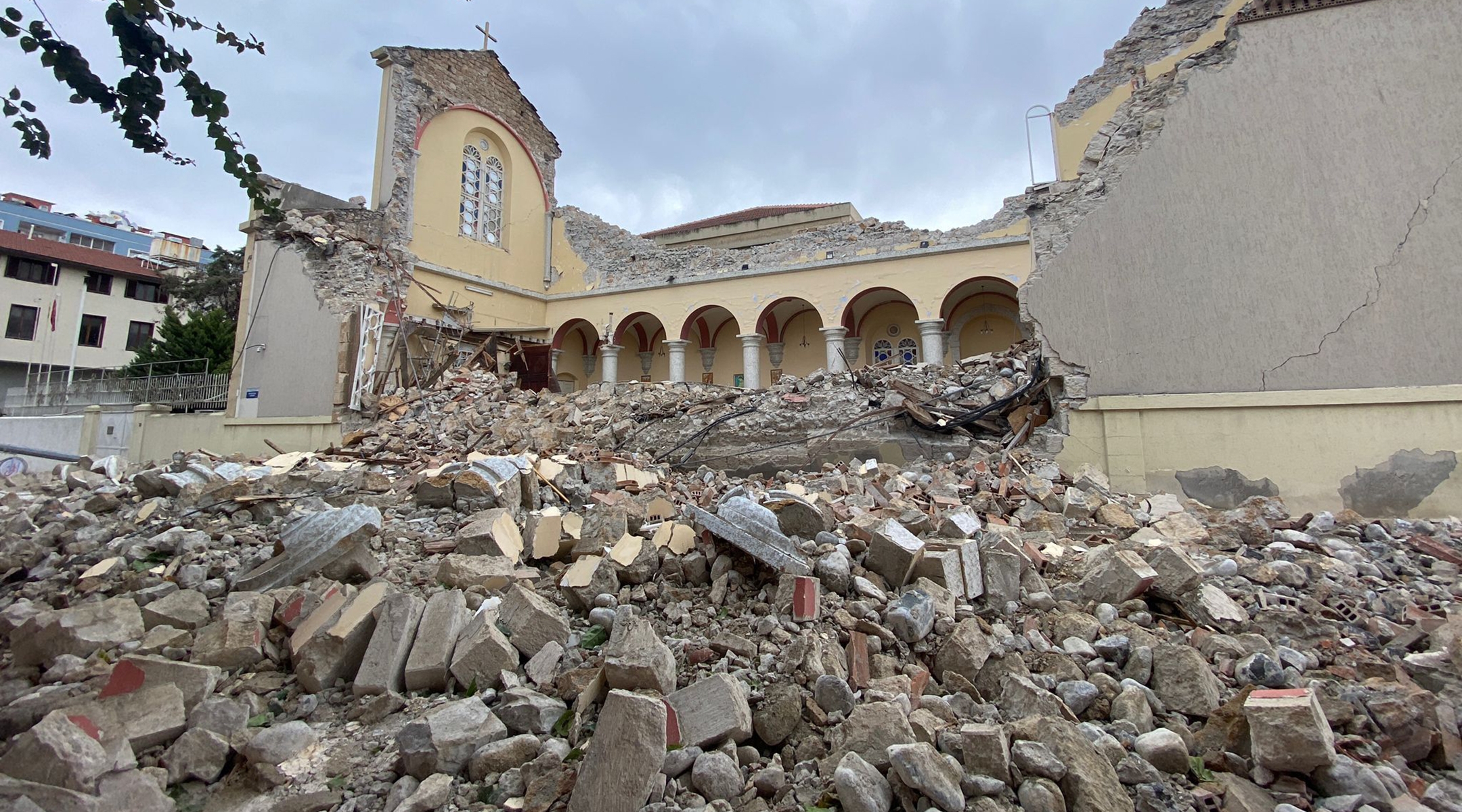Israel sends aid to Turkey and Syria in wake of earthquake that has killed thousands
A few local Jews were rescued from rubble as southeastern Turkey was ravaged by its worst earthquake in a century

A view of collapsed building after a 7.4 magnitude earthquake hit Hatay, Turkey, Feb. 6, 2023. (Ali Kemal Zerenli/Anadolu Agency via Getty Images)
This is a developing story.
ISTANBUL (JTA) — Israel is sending aid to Turkey and Syria in the wake of a 7.8 magnitude earthquake that has left over 2,000 dead as of Monday evening here.
Israel will send medication, tents and other supplies to Syria, its neighbor that it considers a hostile state, according to Hebrew language media. The Israeli military will also send rescue teams to both countries, the Israeli embassy in the Turkish capital Ankara told the Jewish Telegraphic Agency. That embassy was only recently formally re-established after years of diplomatic tensions.
“At the request of the Turkish government, I have instructed all authorities to make immediate preparations to provide medical, and search and rescue assistance. The Foreign and Defence ministers have already been in contact with their counterparts and we will – in the coming hours – agree on the dispatching of a delegation as soon as possible,” Israeli Prime Minister Netanyahu said in a statement on Twitter Monday morning Jerusalem time.
The quake, whose epicenter was in the eastern Turkish province of Kahramanmaras, was felt throughout the region, as far as Israel. It was the highest magnitude the country has experienced in nearly a century and has the highest number of casualties in decades.
Antakya, a city in southeastern Turkey at the Syrian border, was hit particularly hard. When the JTA visited the city last year, 14 Jews remained in a community that has stood for centuries, stretching back to the days of the Seleucid Empire. The city’s namesake, Antiochus, was the villain of the Hanukkah story.
Three members of the largely elderly community — its president, his wife and his brother — were trapped by rubble after their apartment building collapsed on Monday, but they have since been rescued, a spokesperson for the Turkish Jewish community told JTA.
The nearby city of Adana, which has a Jewish community of fewer than a dozen people, was also badly hit by the quake, but none of the local Jews are reported missing or injured.
The region is also home to many sites of Jewish heritage, from historic synagogues to Harran, a city mentioned in the Bible. Whether any have been damaged is not yet known.
The overwhelming majority of Turkey’s Jews live on the western side of the country, largely in Istanbul, with a smaller community in Izmir. Both cities were unaffected by the quake.
“The embassy is reaching the Jewish communities across Turkiye and is searching for Israelis if there are any in the affected region,” Nadav Markman, the deputy chief of mission of Israel in Turkey, told JTA.
Turkey has experienced deadly earthquakes before. In 1999, during the infamous Izmit Earthquake, the ground shook for under 40 seconds but nearly 20,000 people died. That disaster registered a 7.6 on the Richter scale compared to Monday’s 7.8.
Since the seismic event around 4:17 a.m. local time, there have been more than 100 aftershocks, many with magnitudes topping 4 or 5 themselves. The shocks are expected to continue for several days. A second 7.5 magnitude quake struck the region later in the afternoon on Monday.
Other Israeli groups, including United Hatzalah of Israel; MASHAV, Israel’s national aid agency; the nonprofit SmartAid; and the Magen David Adom organization also mobilized teams to travel to Turkey.
This article originally appeared on JTA.org.













